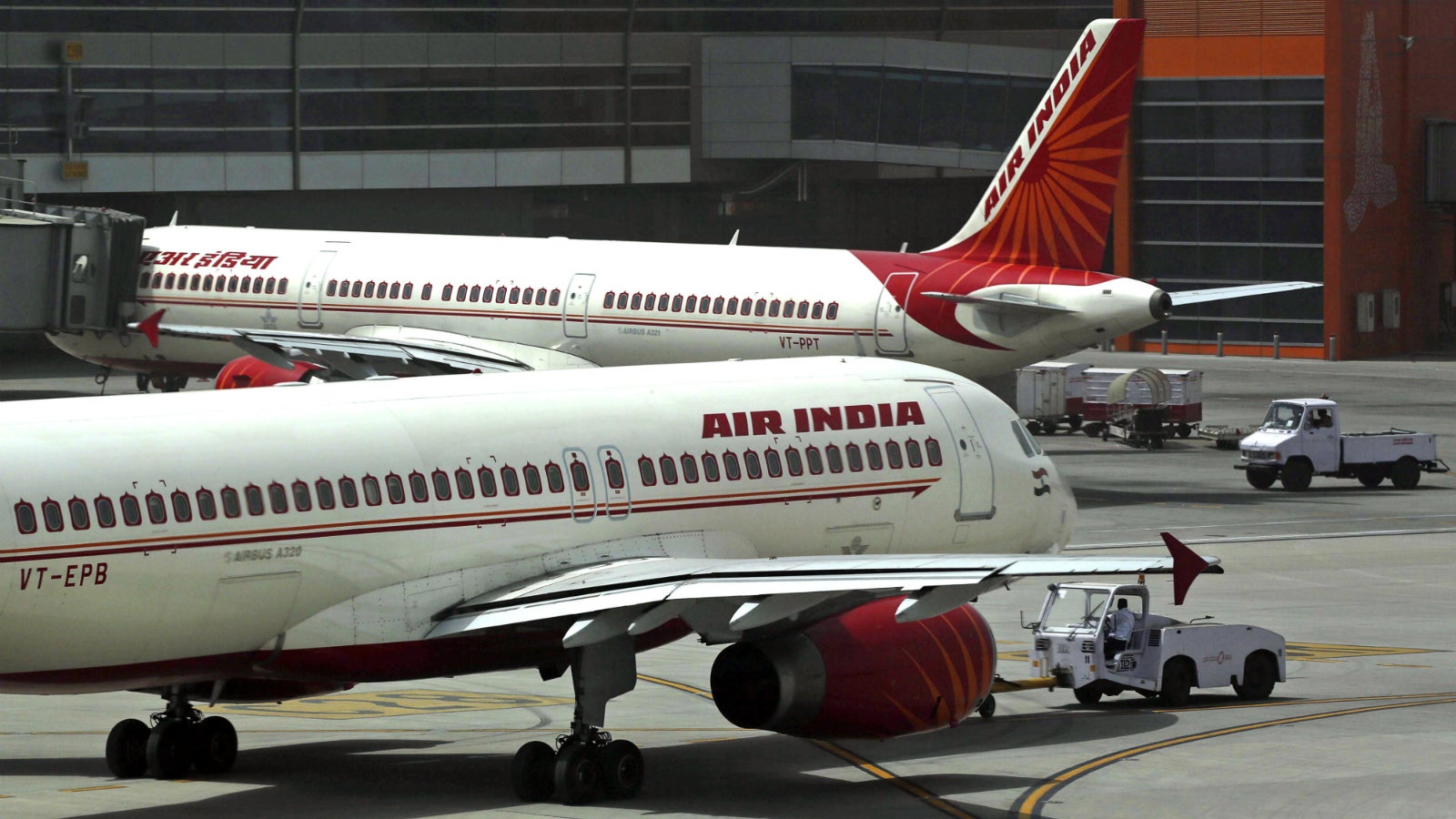How the Indian government sweetened the Air India deal
Now that Air India is finally up for sale, the Indian government has tried to make an offer that suitors just cannot refuse: full management control, three-fourths of the stake, and only about half the debt.


Now that Air India is finally up for sale, the Indian government has tried to make an offer that suitors just cannot refuse: full management control, three-fourths of the stake, and only about half the debt.
On March 28, India’s civil aviation ministry invited expressions of interest (EoI, pdf) from potential buyers for a 76% stake in the national airline. This would include Air India’s 100% stake in its subsidiary Air India Express and a 50% stake in Air India SATS Airport Services, a ground-handling service company formed in partnership with Singapore-based SATS.
The Narendra Modi government has listed several perks to ensure robust responses from bidders, especially the local ones. “The civil aviation ministry specifically sought some eligibility criteria exemptions to facilitate participation of two listed scheduled operators,” a government official told Quartz, requesting anonymity.
Who can bid?
The government has mandated that the net worth of interested bidders must be at least Rs5,000 crore (around $770 million), and that they should have been consecutively profitable for three of the last five financial years. However, scheduled Indian airline operators are exempted from these if they bid as a part of a consortium.
“The minimum share of net worth…requirement shall not apply…provided equity shareholding of such member is restricted to maximum of 51% of paid up equity share capital of the consortium,” the EoI document said.
This exemption would help airlines like Jet Airways, reportedly keen on Air India but with a negative net worth (pdf) in financial year 2017. India’s largest airline and another interested bidder, IndiGo, too, has a net worth of under Rs5,000 crore for the year ended March 2017.
But industry observers believe this exemption could raise questions on the fairness of the process. “It is evident that they’re trying to make the deal work for someone, but the government shouldn’t work like that. You cannot be preferring certain groups,” an aviation consultant said, requesting anonymity.
The government has also stipulated that in case of a group of bidders, each investor must have at least a 20% stake in the consortium, while the lead investor must have a 51% stake. Foreign airlines would not be given management control.
The division of debt
Air India’s mammoth debt was always going to be a wet blanket in the deal. As of financial year 2017, the debt and potential liabilities of the main airline alone added up to approximately Rs52,000 crore (around $8 billion). However, the government has decided to ease this burden significantly for its new owners.
Nearly Rs30,000 crore of the Air India group’s debt will be hived off into a special purpose vehicle, the details of which are still being worked out. Authorities are also prepared to waive Air India’s tax dues worth around Rs800 crore, the official said.
“After that, around Rs33,400 crore in debt will still be a part of the package. This includes working capital debt of around Rs8,800 crore,” the official said.
The government’s shadow
The government will retain a 24% stake in the airline post-sale. “The idea is to slowly exit the airline. The government will support the listing of Air India in the country’s stock exchanges. There are no restrictions on raising additional capital through the markets either,” the official explained. The 24% stake includes the pool of employee stock options.
“Government stake in the airline, excluding the ESOP (employee stock ownership plan) pool, may even fall below 20%,” civil aviation minister Jayant Sinha explained in an interview to CNBC-TV18.
However, the government has clarified that it will have no say in operations.
The ancillaries
The winning bidder will also get 21.5 acres of Air India’s land in the Delhi and Mumbai airports, along with usage rights for at least two years. The government expects all of these factors to pique investors’ interest, said Mark Martin, head of aviation consultancy firm, Martin Consulting.
However, a word of caution. “It’s definitely a step in the right direction, but there’s a very thin line between making a deal attractive, and bending over backwards. The government should not sell Air India in a rush. Having said that, the eventual IPO (intial public offering) would be a fairly progressive step, which will also help the government make a lot of money,” Martin said.
The restrictions
In order to ensure smooth operations, the government has restricted the buyers from exiting their stakes for three years post-sale.
Several reports had said that the new owners would be mandated to retain its employees for at least a year after sale. But no such mandate has been carved out in the document inviting bids.
Air India’s sale has attracted the attention of many players in the aviation space, but who wins the Maharajah over will only be revealed on May 28.